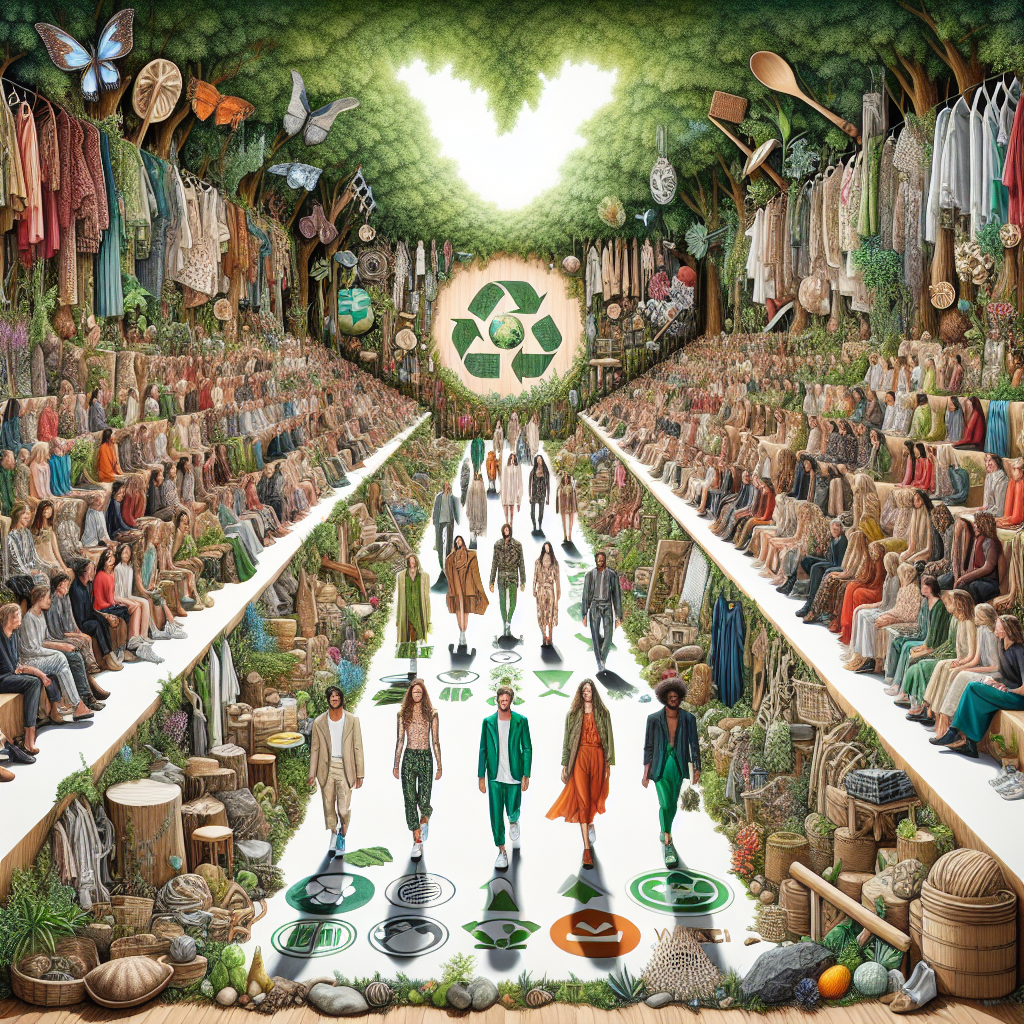The Rise of Eco-Friendly Materials in Fashion
One of the most significant aspects of the evolution of sustainable fashion is the rise of eco-friendly materials in the industry. With growing awareness about environmental issues, fashion brands are increasingly turning towards sustainable and eco-friendly materials to create their products. This shift is driven by the demand from consumers who are seeking environmentally conscious options in their clothing choices.
Traditionally, the fashion industry has been associated with significant environmental impact due to the use of non-biodegradable synthetic materials and harmful chemical processes. However, the emergence of eco-friendly materials such as organic cotton, hemp, bamboo, and recycled polyester has revolutionized the way fashion products are made. These materials are biodegradable, require less water and energy to produce, and have a lower carbon footprint compared to conventional fabrics.
Furthermore, the development of innovative sustainable materials like Piñatex (made from pineapple leaf fibers), Tencel (from sustainably sourced wood pulp), and Econyl (regenerated nylon from recycled ocean waste) has paved the way for a new era of sustainable fashion. These materials not only reduce the strain on natural resources but also contribute to waste reduction and conservation of ecosystems.
As consumer demand for eco-friendly fashion continues to grow, more brands are committing to using sustainable materials in their collections. This trend is not only influencing the way fashion is produced but also shaping consumer preferences, causing sustainable fashion to shift from a niche market to a mainstream movement.
Ethical Production Practices in the Fashion Industry
The evolution of sustainable fashion from a niche market to the mainstream has brought a spotlight on the importance of ethical production practices in the fashion industry. As consumer awareness about the environmental and social impact of clothing production grows, so does the demand for transparency and ethical standards in the fashion supply chain.
Ethical production practices in the fashion industry encompass a wide range of considerations, including fair wages and working conditions for garment workers, sustainable sourcing of materials, and responsible waste management. Brands are increasingly being held accountable for their production processes, prompting many to re-evaluate their supply chain and implement more ethical and sustainable practices.
Some key initiatives in ethical production practices include the use of eco-friendly and sustainable materials, such as organic cotton, recycled polyester, and innovative fabrics derived from natural sources. Additionally, there is a growing emphasis on supporting fair trade and empowering artisan communities through ethical sourcing partnerships.
Transparency plays a crucial role in promoting ethical production practices, as consumers and advocacy groups push for greater visibility into the origins of the products they purchase. This has led to the rise of certifications and labeling systems that verify ethical and sustainable practices throughout the supply chain, providing consumers with the information they need to make more informed purchasing decisions.
In conclusion, the shift towards ethical production practices in the fashion industry is indicative of a broader movement towards sustainability and social responsibility. As consumers continue to prioritize ethical considerations in their purchasing behaviors, it is clear that ethical production practices will remain a pivotal aspect of the evolving sustainable fashion landscape.
Changing Consumer Attitudes Towards Sustainable Fashion
Consumer attitudes towards sustainable fashion have undergone a significant evolution in recent years, transitioning from a niche interest to a mainstream concern. This shift has been driven by a growing awareness of the environmental and social impact of the fashion industry. Consumers are increasingly seeking transparency and ethical practices from the brands they support, leading to a rising demand for sustainable and eco-friendly fashion options.
One of the key drivers of this change has been the increased access to information and education surrounding sustainable practices within the fashion industry. With the rise of social media and online content, consumers are now more informed about the detrimental effects of fast fashion and the importance of making environmentally conscious choices. As a result, there has been a notable shift towards prioritizing quality over quantity and embracing a more mindful approach to fashion consumption.
Additionally, changes in consumer attitudes have been propelled by a growing emphasis on corporate social responsibility and ethical production standards. Brands that demonstrate a commitment to sustainable and ethical practices are resonating with today’s consumers, leading to an increased demand for eco-conscious fashion options. This has prompted many mainstream fashion companies to integrate sustainability into their business models, further solidifying the shift towards a more sustainable industry overall.
In conclusion, the evolving consumer attitudes towards sustainable fashion reflect a broader cultural shift towards prioritizing ethical and environmentally friendly choices. As consumers continue to demand transparency and accountability from the fashion industry, it is clear that sustainability has moved from a niche concern to a driving force shaping the future of fashion.
